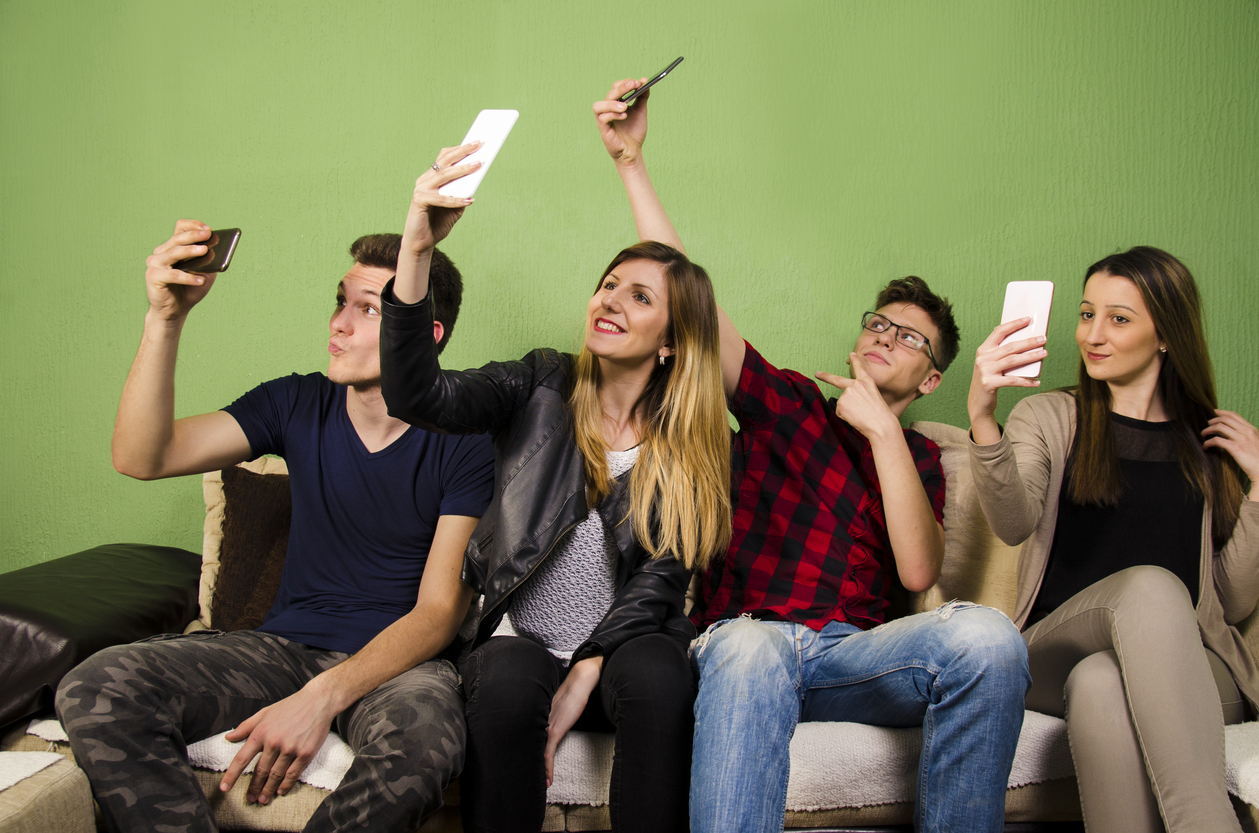Followers, “Likes,” Attractiveness Increase Social Media Likability. Selfies? Not So Much, Baylor Study Says



Social media users who post a high percentage of selfies have lower perceived likability, study shows
Media Contact: Eric M. Eckert, 254-710-1964Follow Eric on Twitter at @EricBaylorU
Follow Baylor Media Communications on Twitter: @BaylorUMedia
WACO, Texas (Feb. 22, 2018) – Maybe you think your Facebook posts are hilarious. Or you might think that Instagram selfie of you at the beach is picture-perfect. And that clever Tweet? You nailed it!
But what do other people – your “friends,” “followers” and anyone else who might stumble across your profile – think of you based on your social media presence? Do they really like you?
A new Baylor University study published in the journal Psychology of Popular Media Culture looks at the value that outside observers place on social media cues (followers, likes, etc.) and measures the perceived likability of the people whose profiles were viewed. The experimental study generated 873 decision responses from 72 experienced social media users who were asked to look at differing social media profiles and posts and then assess the likeability of the social media user.
“There are many studies of individuals’ self-perception through social media use. We are turning that around and looking at the audience’s perspective,” said the study’s lead author, Steven W. Bradley, Ph.D., associate professor of entrepreneurship in Baylor University’s Hankamer School of Business.
The study shows that “perceived likability” – a combination of perceived friendliness, relevance, empathy and realness – differed among men and women. Individual cue patterns confirmed several commonly held assumptions while combinations of social cues produced more intriguing findings, Bradley said. Researchers found:
- Social media users who amass a larger number of friends and garner high numbers of likes on their posts have a higher perceived likability
- Social media users who are considered physically attractive have higher perceived likability
- Social media users who post a high percentage of selfies – photos featuring only themselves – have lower perceived likability
- Males tend to value attractiveness more than females in assessing likability
- Females tend to base perceived likability on numbers of followers, likes and percentage of selfies
Overall, the number of followers and likes are twice as important as attractiveness in predicting likeability, Bradley said. Alternatively, social media users with a higher percentage of selfies are considered 1.5 times less likeable by outside observers.
Researchers found that users who were rated “low in attractiveness” gained more likability points, per se, if they had a large number of followers and likes. When social media users are viewed as “higher in attractiveness,” a change in the followers and likes from low to high increases perceived likeability by 20 percent. In contrast, for social media users who are perceived as lower in attractiveness, the difference in rated likeability between low and high followers and likes is 64 percent.
“In other words, numbers of followers and likes may be used by an observer to ‘make up’ for more obvious indicators like attractiveness when assessing likability,” the researchers wrote. “Most observers suggest that attractive people are likable due to associated attributes like social ease and confidence. A less attractive person with a high number of followers and likes suggest that other features – perhaps friendliness, relevance, empathy and realness – are the source of their social network, which also increase perceptions of likability.”
As for selfies? The researchers found that observers use their experience with cues regarding selfies to evaluate whether an authentic or manufactured self is presented.
“Too many selfies suggest the page owner is overly narcissistic and not a good friend candidate,” said study co-author James A. Roberts, Ph.D., The Ben H. Williams Professor of Marketing in Baylor’s Hankamer School of Business.
Likeability diminished even when other social media status cues of followers or attractiveness were high.
“We hypothesized and found that a high percentage of selfies is a cue that may indicate less reciprocity and group benefit, focusing narcissistically on oneself relative to others,” the researchers wrote.
ABOUT THE STUDY
The study, “Experimental Evidence of Observed Social Media Status Cues on Perceived Likability,” is published in the journal Psychology of Popular Media Culture. Authors are Steven W. Bradley, Ph.D., associate professor of entrepreneurship, Baylor University Hankamer School of Business; James A. Roberts, Ph.D., The Ben H. Williams Professor of Marketing, Baylor University Hankamer School of Business; and Preston W. Bradley, student, Live Oak Classical School, Waco, Texas.
ABOUT BAYLOR UNIVERSITY
Baylor University is a private Christian University and a nationally ranked research institution. The University provides a vibrant campus community for more than 17,000 students by blending interdisciplinary research with an international reputation for educational excellence and a faculty commitment to teaching and scholarship. Chartered in 1845 by the Republic of Texas through the efforts of Baptist pioneers, Baylor is the oldest continually operating University in Texas. Located in Waco, Baylor welcomes students from all 50 states and more than 80 countries to study a broad range of degrees among its 12 nationally recognized academic divisions.ABOUT HANKAMER SCHOOL OF BUSINESS
Baylor University’s Hankamer School of Business provides a rigorous academic experience, consisting of classroom and hands-on learning, guided by Christian commitment and a global perspective. Recognized nationally for several programs, including Entrepreneurship and Accounting, the school offers 24 undergraduate and 13 graduate areas of study. Visit www.baylor.edu/businessand follow on Twitter at twitter.com/Baylor_Business.